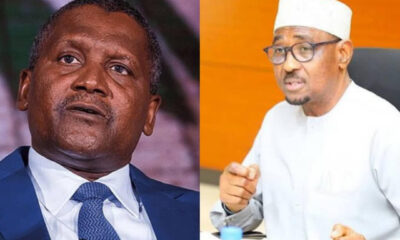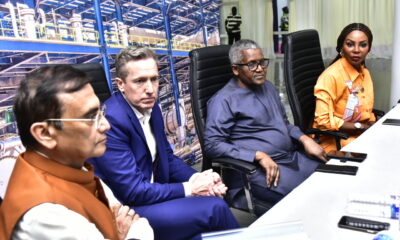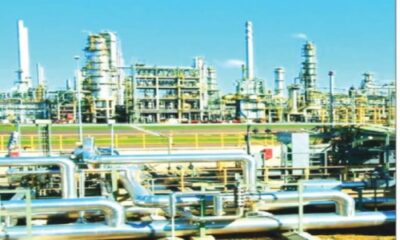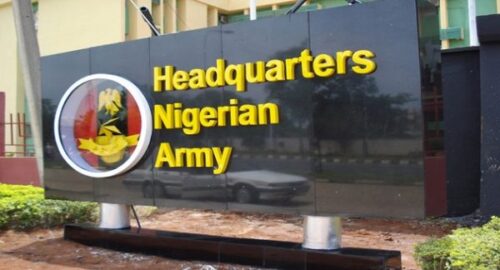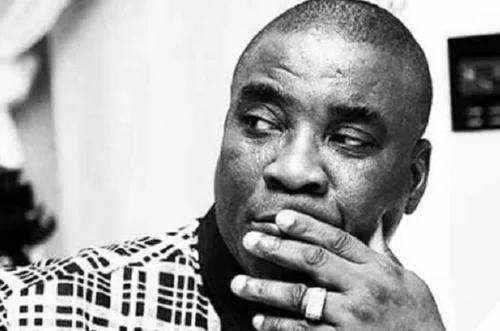The President/Chief Executive, Dangote Industries Limited, Aliko Dangote has disclosed plans to increase the human capacity at the Dangote Refinery Project site from 40,000 to 57,000 personnel in the coming months.
According to him, the project currently employs 29,000 Nigerians and 11,000 foreigners at the 650,000 barrels-per-day world’s largest single refinery project located in the Ibeju Lekki area of Lagos. This is a ratio of around three Nigerians to one expatriate presently, which will increase local talent with the new additions.
Speaking in Lagos in a recent broadcast, which aired on Arise TV, Dangote said the refinery project remains the biggest in Africa and one of the biggest in the world, adding that many Nigerians were getting massive training as a way to build in-country capacity.
“When we started the project, we were supposed to bring a lot of foreign workers, but as we speak today, we have less than 11,000 expatriates. We have almost about 29,000 Nigerian workers that are getting massive training. We are also creating a lot of capacity in the country, which will be of great help for future oil projects in Nigeria, most especially with the opening up of the oil industry through the new Petroleum Industry Act.
“It means that the country can boast of human capacity needed in the oil and gas sector. Most of these Nigerians can compete anywhere in the world in terms of electrical, welding, mechanical erection, etc. We have actually created massive capacity,” he added.
The business mogul said construction of the Dangote Petroleum Refinery was informed by his desire to help the Federal Government tackle the lingering issue of petroleum products importation.
“It makes me feel terrible to see a country as big and resourceful as Nigeria with a high population, importing all its petroleum products. It is very painful. So, we decided it is time to tackle this challenge. We tried before in 2007, but we were not able to make it happen. So, we jettisoned the idea,” Dangote explained.
He added, “What actually inspired me is when you look at what happened in a country like India where entrepreneurs went ahead and created about five million barrels-per-day oil refinery. This country does not have as much oil as Nigeria. Nigeria is here sitting on over 2.4 million barrels per day at a point and we do not refine the oil we produce. Here, we have a country of over 200 million people and we are importing 100 percent of what we consume.
“It is not sustainable. If you go to some places in Nigeria, you will discover that there are petrol stations that are not working. This actually pushed me into saying that this is a big challenge, which needed to be addressed urgently. Because I’m a Nigerian and if there are issues to be sorted out, I should be one of those who will bring solutions to our national problems.”
Dangote described the refinery project as an investment that would transform the economies of countries in sub-Saharan Africa. “This refinery is going to help transform, not only the oil sector, it is going to assist to transform the entire economy of Nigeria and all the countries in sub-Saharan Africa. It is unfortunate that all sub-Saharan African countries are importing petroleum products, and this is not what it is supposed to be.
“It is not the government’s responsibility alone to address the challenge of petroleum products importation in Nigeria. No, we have to collaborate with the government to tackle these issues of petroleum importation. It will put millions of people directly and indirectly at work. The refinery is going to massively transform the economy. By this transformation, the government will have more money to take care of infrastructure, health, education. So, it is a massive transformational project,” he added.
Dangote emphasized the need for the country to shift attention from crude oil export and diversify the economy. “We should not as a country be comfortable with generating revenue from crude oil export alone because tomorrow, people may not need crude oil. If we don’t move from crude oil to something else, we will have issues as a country. This is one of the things that I took upon myself to help address in this country,” he said.


 BIG STORY23 hours ago
BIG STORY23 hours ago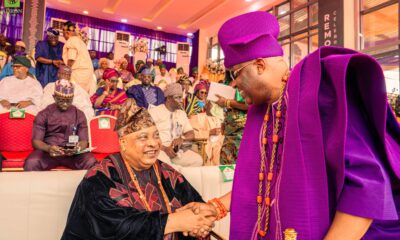
 ENTERTAINMENT5 days ago
ENTERTAINMENT5 days ago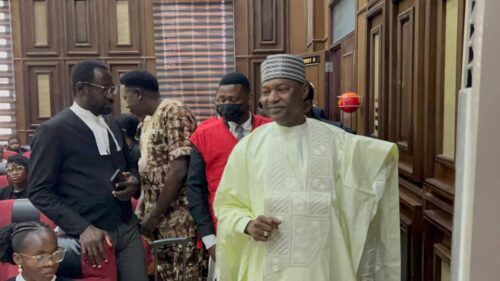
 BIG STORY3 days ago
BIG STORY3 days ago
 BIG STORY4 days ago
BIG STORY4 days ago
 BIG STORY3 days ago
BIG STORY3 days ago
 Uncategorized2 days ago
Uncategorized2 days ago
 BIG STORY3 days ago
BIG STORY3 days ago
 BIG STORY3 days ago
BIG STORY3 days ago






